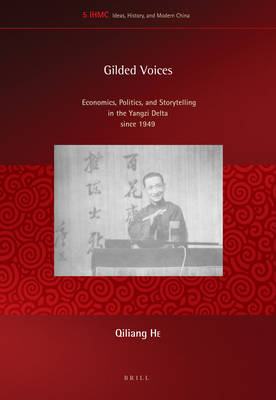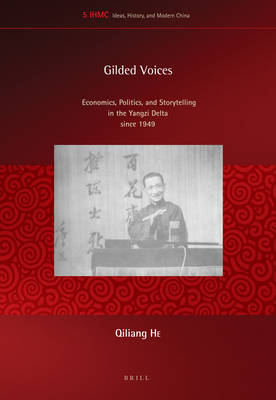
- Afhalen na 1 uur in een winkel met voorraad
- Gratis thuislevering in België vanaf € 30
- Ruim aanbod met 7 miljoen producten
- Afhalen na 1 uur in een winkel met voorraad
- Gratis thuislevering in België vanaf € 30
- Ruim aanbod met 7 miljoen producten
Zoeken
€ 250,45
+ 500 punten
Omschrijving
In Gilded Voices: Economics, Politics, and Storytelling in the Yangzi Delta since 1949, Qiliang He pieces together published, archival, and oral history sources to explore the role of the cultural market in mediating between the state and artists in the PRC era. By focusing on pingtan, a storytelling art using the Suzhou dialect, the book documents both the state's efforts to police artists and their repertoire and storytellers' collaboration with, as well as resistance to, state supervision and intervention. The book thereby challenges long-held scholarly assumptions about the Chinese Communist Party's success in politicizing popular culture, patronizing artists, abolishing the cultural market, and enforcing rigid censorship in Mao's times.
Specificaties
Betrokkenen
- Auteur(s):
- Uitgeverij:
Inhoud
- Aantal bladzijden:
- 320
- Taal:
- Engels
- Reeks:
- Reeksnummer:
- nr. 5
Eigenschappen
- Productcode (EAN):
- 9789004232433
- Verschijningsdatum:
- 6/07/2012
- Uitvoering:
- Paperback
- Formaat:
- Trade paperback (VS)
- Afmetingen:
- 163 mm x 241 mm
- Gewicht:
- 657 g

Alleen bij Standaard Boekhandel
+ 500 punten op je klantenkaart van Standaard Boekhandel
Beoordelingen
We publiceren alleen reviews die voldoen aan de voorwaarden voor reviews. Bekijk onze voorwaarden voor reviews.








